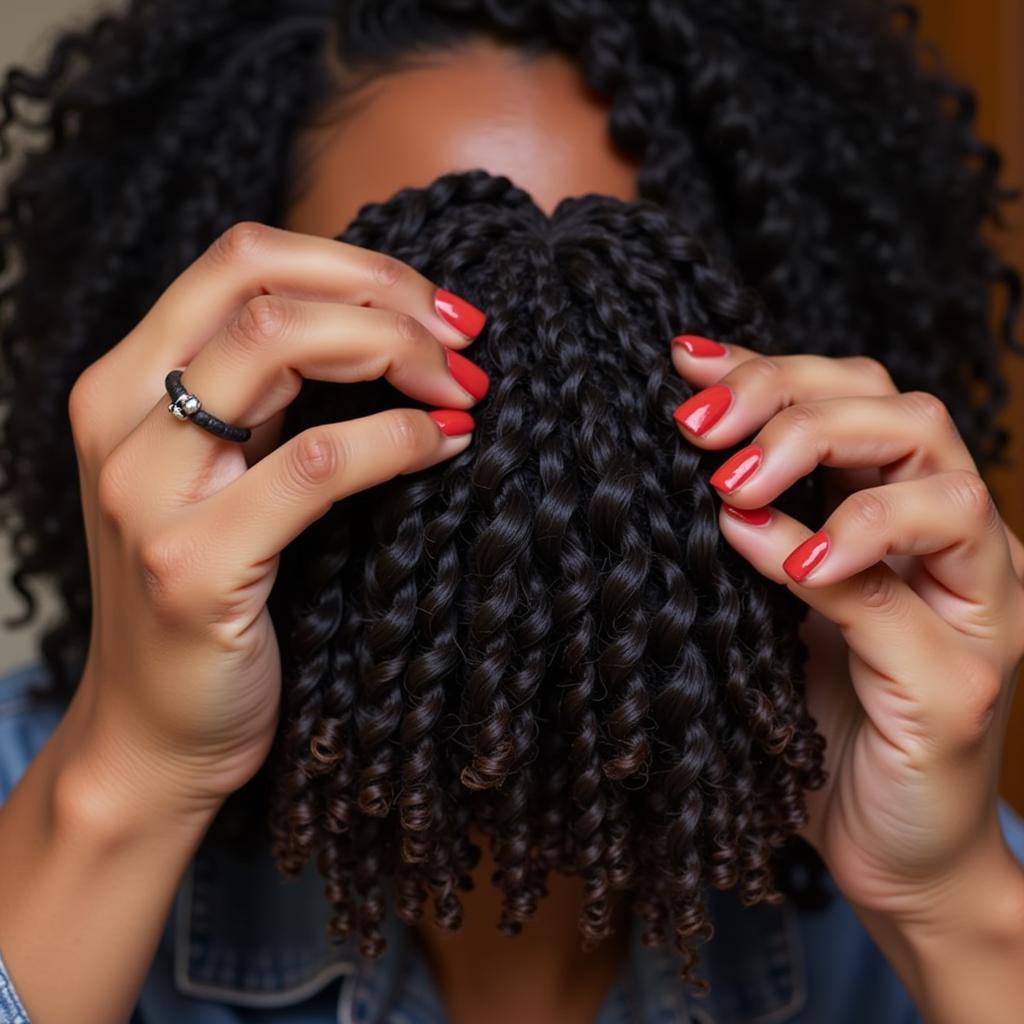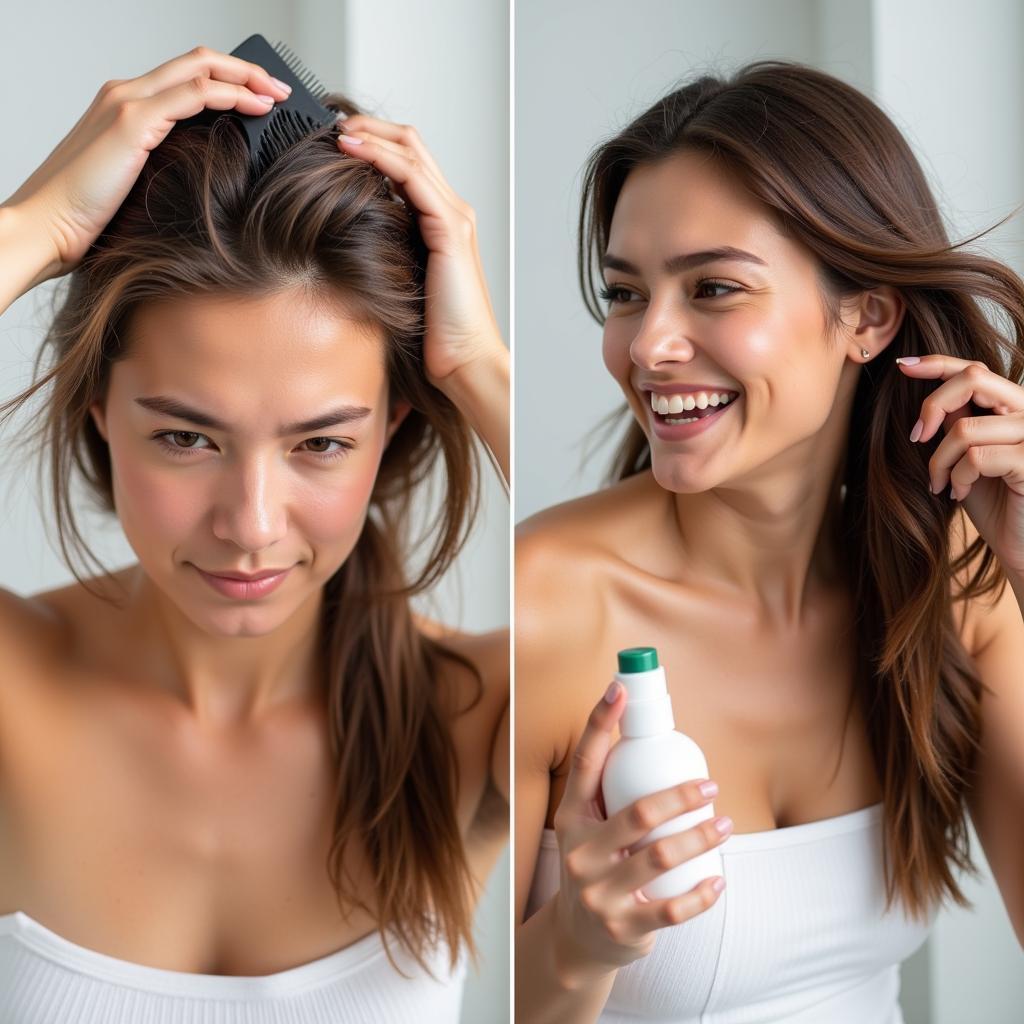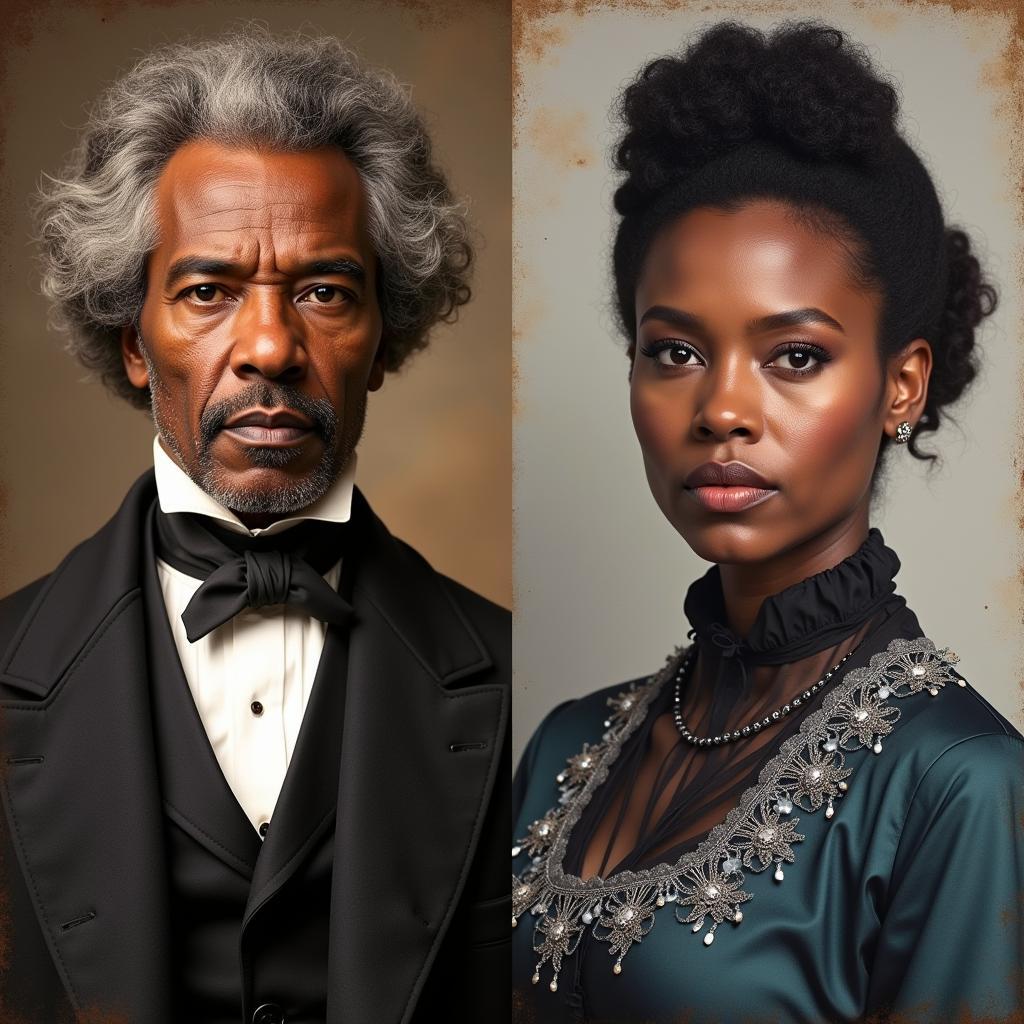The Ultimate Guide to African American Natural Hair Care
For generations, African American natural hair has been a source of pride, identity, and cultural heritage. Embracing your natural texture is a beautiful journey, but it’s important to have the right knowledge and products for healthy, thriving hair. This guide explores everything you need to know about African American Natural Hair Care.
Understanding Your Unique Hair Type
 Understanding Your Hair Texture
Understanding Your Hair Texture
One of the first steps to caring for your natural hair is understanding its unique characteristics. African American hair is incredibly diverse, ranging from tightly coiled curls to looser waves. Each curl pattern has its own set of needs. It’s crucial to identify your hair’s porosity (how well it absorbs moisture), density (how many strands you have per square inch), and texture (the shape and size of your curls) to create a tailored hair care routine.
Building a Solid Natural Hair Care Routine
A consistent routine is key to healthy natural hair. Here’s a breakdown of essential steps:
1. Cleansing and Conditioning
- Cleansing: Opt for sulfate-free shampoos or co-washes (cleansing conditioners) to avoid stripping your hair of its natural oils.
- Deep Conditioning: Use a deep conditioner weekly or bi-weekly to restore moisture and strengthen hair strands.
- Leave-in Conditioner: This provides ongoing hydration and helps detangle hair.
2. Moisturizing and Sealing
- Moisturizing: Water is essential for natural hair. Use a water-based leave-in conditioner or spray daily.
- Sealing: After moisturizing, apply an oil or butter to seal in moisture and prevent dryness.
3. Styling and Protecting
- Protective Styles: These styles, such as braids, twists, or locs, help minimize breakage and retain length.
- Low Manipulation: Excessive styling can lead to damage. Embrace simple hairstyles and avoid over-manipulating your hair.
- Nighttime Care: Sleep on a satin or silk pillowcase or use a satin/silk scarf to prevent friction and breakage.
Essential Natural Hair Care Products
The right products can make all the difference in your natural hair journey. Look for:
- Sulfate-free Shampoos and Co-washes: Gentle cleansers that won’t strip natural oils.
- Deep Conditioners: Intensely moisturizing treatments to replenish and strengthen hair.
- Leave-in Conditioners: Lightweight conditioners that provide ongoing hydration and detangling.
- Oils and Butters: Seal in moisture, add shine, and provide nourishment (e.g., jojoba oil, shea butter, castor oil).
Common Mistakes to Avoid
 Common Natural Hair Mistakes
Common Natural Hair Mistakes
- Over-washing: This can lead to dryness. Wash your hair 1-2 times a week or less, depending on your hair’s needs.
- Heat Styling: Excessive heat can damage natural hair. Limit heat styling and always use a heat protectant.
- Using Harsh Chemicals: Relaxers and texturizers can weaken and damage natural hair.
- Not Trimming Split Ends: Regular trims help prevent further breakage and promote healthy hair growth.
Embracing Your Natural Crown
Caring for your African American natural hair is a journey of self-discovery and empowerment. By understanding your hair type, building a solid routine, using the right products, and avoiding common mistakes, you can rock your natural curls with confidence. Remember, your hair is beautiful just the way it is!
Frequently Asked Questions About African American Natural Hair Care
1. How often should I wash my natural hair?
Washing 1-2 times a week or less is usually sufficient for most. However, factors like your scalp’s oil production, exercise frequency, and lifestyle can influence how often you need to wash.
2. What are some great protective styles for natural hair?
Braids, twists, locs, bantu knots, and flat twists are excellent protective style options.
3. How can I prevent breakage?
Moisturize regularly, detangle gently, avoid tight hairstyles, minimize heat styling, and sleep on a satin or silk pillowcase.
4. What are some natural remedies for hair growth?
While more research is needed, some believe that scalp massages, aloe vera, and essential oils like rosemary and peppermint oil may promote hair growth.
5. Where can I find more resources on African American hair care?
For more helpful tips and information, check out our:
- African American Natural Hair Care Recipes
- African Hair Blog
- Guide to African American Natural Curly Hair
Looking for specialized hair care solutions?
We also have resources for:
Need personalized advice or have questions about your natural hair journey? We’re here to help! Contact us at +255768904061, email kaka.mag@gmail.com, or visit us in Mbarali DC Mawindi, Kangaga, Tanzania. Our dedicated customer support team is available 24/7 to assist you.


